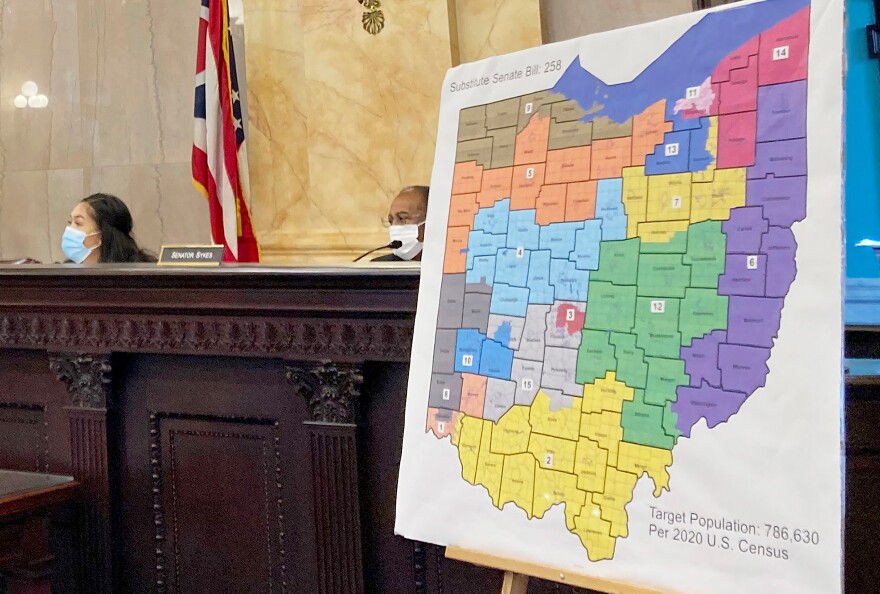Ohio voters rejected a constitutional amendment Tuesday that would have established a citizen-led redistricting commission to replace an existing mapmaking system that repeatedly produced unconstitutional maps.
The outcome marked a defeat for the group Citizens Not Politicians, a bipartisan coalition that proposed Issue 1 as an alternative after seven straight sets of legislative and congressional maps produced under the existing setup were found to be unconstitutionally gerrymandered to favor Republicans.
Leading GOP officials, including Gov. Mike DeWine, joined forces against Issue 1, arguing the new commission was flawed and unaccountable. DeWine has vowed to pursue his own alternative next year.
Former President Donald Trump, who won the state for the third time Tuesday, also appeared in ads urging Ohioans to vote against the measure.
Loading...
Proponents were also stymied by the approved ballot language, which described the new commission as being “required to gerrymander” district boundaries — though the amendment stated the opposite was the case.
The campaign sued the GOP-controlled Ohio Ballot Board over it, telling the Ohio Supreme Court it may have been “the most biased, inaccurate, deceptive, and unconstitutional” language the state has ever seen. The court’s Republican majority voted 4-3 to let the wording stand.
The governor contended that the mapmaking rules laid out in Issue 1 would divide communities and mandate outcomes that fit “the classic definition of gerrymandering.” He took specific aim at the proposal’s requirement for partisan proportionality in the maps.
DeWine said Iowa’s system — in which mapmakers are prohibited from consulting past election results or protecting individual lawmakers — would remove politics from the process.
Issue 1 supporters disagreed, pointing out that Iowa state lawmakers have the final say on political district maps in that state — the exact scenario their plan was designed to avoid. Maureen O’Connor, the retired Ohio chief justice who championed Issue 1, accused DeWine of spreading disinformation about the ballot measure.
The fall ballot proposal called for replacing the Ohio Redistricting Commission, made up of the governor, auditor, secretary of state and the four legislative leaders, with an independent body made up of ordinary citizens. The new panel’s members would have been diversified by party affiliation and geography.
In a statement, the Ohio Chamber of Commerce said it was pleased that voters recognized the consequences of Issue 1 and rejected it.
“We agree that the current redistricting system is flawed,” the business group said. “However, this constitutional amendment would have only created larger problems, like raising the cost of doing business in our state and making us less economically competitive.”
The chamber pledged to work with state legislators and elected officials on “the right solution for all.”

